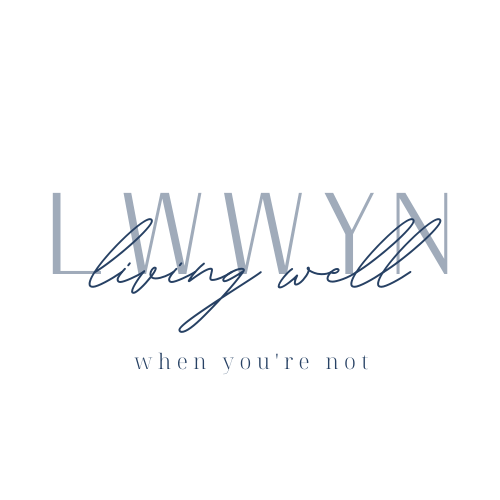You Look Great !
“You look great!” or “You don’t look sick!” are at the top of most lists of what not to say to someone with chronic illness. I have to admit that I sometimes cringe a little when someone says it to me, even though I’ve vowed to live well even when I’m not. The irrational thing is that I take steps to cover the signs of illness: super-duper undereye concealer, ridge filler for my nails, fake tans to hide the gray tinge left by my medicine, brow pencil to draw on the parts of my eyebrows that are missing, just the right shade of foundation with the right amount of coverage to give my mottled skin an even appearance, body makeup to hide bruises from needles, cute orthopedic shoes, and oodles of hair products that promise to unfry my damaged hair. Looking not so sick makes me feel not so sick. Many of you know what I’m talking about. Yet, when someone compliments how I look, part of me wants to scream, “I’m sick, damn it! And don’t you forget it! If you do, I might be out here in this struggle alone instead of with you helping me along this road.”
I finally dared to ask myself why I react that way. After all, I want to look like I’m not sick. I realized that I had a conditioned response that is useful for survival but not for living a complex life full of ambiguities. We’ve been conditioned to choose between good and bad, right and wrong, and truths and lies. This either/or thinking serves us well when we have to make quick decisions about our well-being. What, then, do I do when I’m not in survival mode, and there is more than one truth, and those truths are seemingly contradictory? Paradoxes make me uncomfortable because they highlight the uncertainty of life. I sometimes embrace only one truth even though others tell the whole story because I fear the loss of the most important truth to me – I’m sick and don’t want to go it alone. I fear that acknowledging that I often don’t look sick waters down the reality of my illness.
Life is full of paradoxes: The only certainty in life is change; the more you fail, the more chances you have for success, or you want to move, but there’s no place like home. Life with chronic illness has its own set of particular paradoxes: we mourn the life we once had, but we increase our capacity to hold precious wonders in our lives; joy and pain can coexist, and we can look well and be sick. Ironically, each truth deepens our experience of its opposite, and we understand that sorrow can be tinged with joy and joy tinged with sorrow. Our minds can’t really solve a paradox, but we can lean into the whole story and allow our hearts to feel both. In his book Consolations, Poet and author David Whyte calls reality “the hardest attainable ground of all, the place where we actually dwell, the living, breathing frontier where there is no realistic choice between gain and loss.” If we are willing, to be honest with ourselves about the whole truth and not hold tightly to one piece, we can move toward deeper acceptance and even embrace our new lives with renewed presence and awe. Kahlil Gibran’s poem On Joy and Sorrow helped me understand this interplay between conflicting truths.
By Kahlil Gibran - 1883-1931
Then a woman said, Speak to us of Joy and Sorrow.
And he answered:
Your joy is your sorrow unmasked.
And the selfsame well from which your laughter rises was oftentimes filled with your tears.
And how else can it be?
The deeper that sorrow carves into your being, the more joy you can contain.
Is not the cup that holds your wine the very cup that was burned in the potter’s oven?
And is not the lute that soothes your spirit, the very wood that was hollowed with knives?
When you are joyous, look deep into your heart and you shall find it is only that which has given you sorrow that is giving you joy.
When you are sorrowful look again in your heart, and you shall see that in truth you are weeping for that which has been your delight.
Some of you say, “Joy is greater than sorrow,” and others say, “Nay, sorrow is the greater.”
But I say unto you, they are inseparable.
Together they come, and when one sits alone with you at your board, remember that the other is asleep upon your bed.
Verily you are suspended like scales between your sorrow and your joy.
Only when you are empty are you at standstill and balanced.
When the treasure-keeper lifts you to weigh his gold and his silver, needs must your joy or your sorrow rise or fall.

